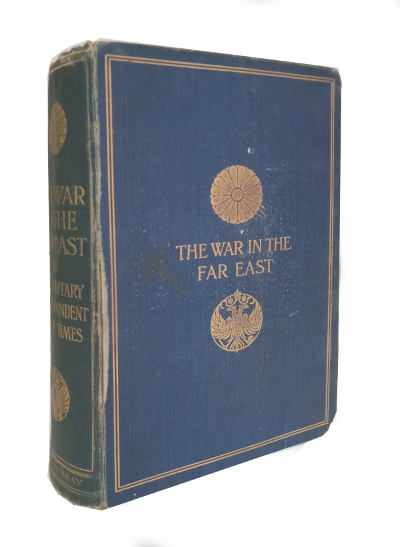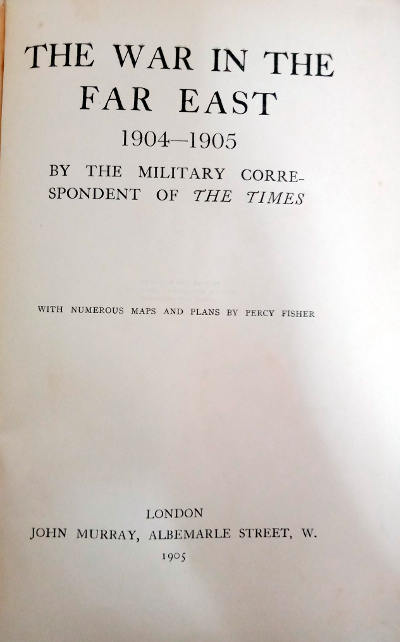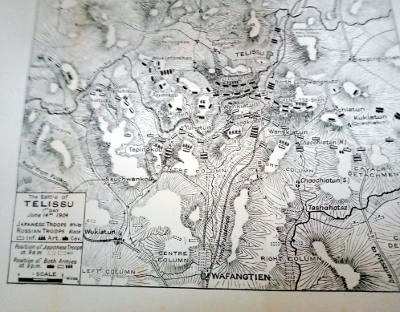About the Russo-Japanese War (from Wikipedia):
The Russian Empire and the Empire of Japan fought the Russo-Japanese War during 1904 and 1905 over rival imperial ambitions in Manchuria and Korea. The major theatres of military operations were the Liaodong Peninsula and Mukden in Southern Manchuria, and the seas around Korea, Japan, and the Yellow Sea.
Russia sought a warm-water port on the Pacific Ocean for both its navy and for maritime trade. Vladivostok remained ice-free and operational only during the summer; Port Arthur, a naval base in Liaodong Province leased to Russia by the Qing dynasty of China from 1897, was operational year round. Since the end of the First Sino-Japanese War in 1895, Japan feared Russian encroachment on its plans to create a sphere of influence in Korea and Manchuria. Russia had demonstrated an expansionist policy east of the Urals in Siberia and the Far East from the reign of Ivan the Terrible in the 16th century.
Seeing Russia as a rival, Japan offered to recognize Russian dominance in Manchuria in exchange for recognition of Korea being within the Japanese sphere of influence. Russia refused and demanded the establishment of a neutral buffer zone between Russia and Japan in Korea north of the 39th parallel. The Japanese government perceived a threat to their plans for expansion into mainland Asia and chose to go to war. After negotiations broke down in 1904, the Japanese Navy opened hostilities in a surprise attack on 9 February 1904 by attacking the Russian Eastern Fleet at Port Arthur, China.
Russia suffered a number of defeats, however Emperor Nicholas II was convinced that Russia could win if it fought on; he chose to remain engaged in the war and wait for the outcomes of certain key naval battles. After the hope of victory was quelled, he continued the war to preserve the dignity of Russia by averting a “humiliating peace”. Russia ignored Japan’s willingness early on to agree to an armistice and rejected the idea of bringing the dispute to the Arbitration Court at The Hague. The war eventually concluded with the Treaty of Portsmouth (5 September 1905), mediated by US President Theodore Roosevelt. The complete victory of the Japanese military surprised international observers and transformed the balance of power in both East Asia and Eastern Europe, resulting in Japan’s emergence as a great power and Russia’s decline in prestige and influence in Eastern Europe. The loss of life without victory and the humiliating defeat for the Russian Empire contributed to growing domestic unrest which culminated in the 1905 Russian Revolution and accelerated the disintegration of the Russian autocracy.




